Treasurer Jim Chalmers refuses to anwser questions on April election following RBA rate cuts
Boosting expectations that the Prime Minister will call an April federal election within weeks, the decision is a huge relief for the Albanese Government with the Treasurer declaring it was the rate cut families “need and deserve”.
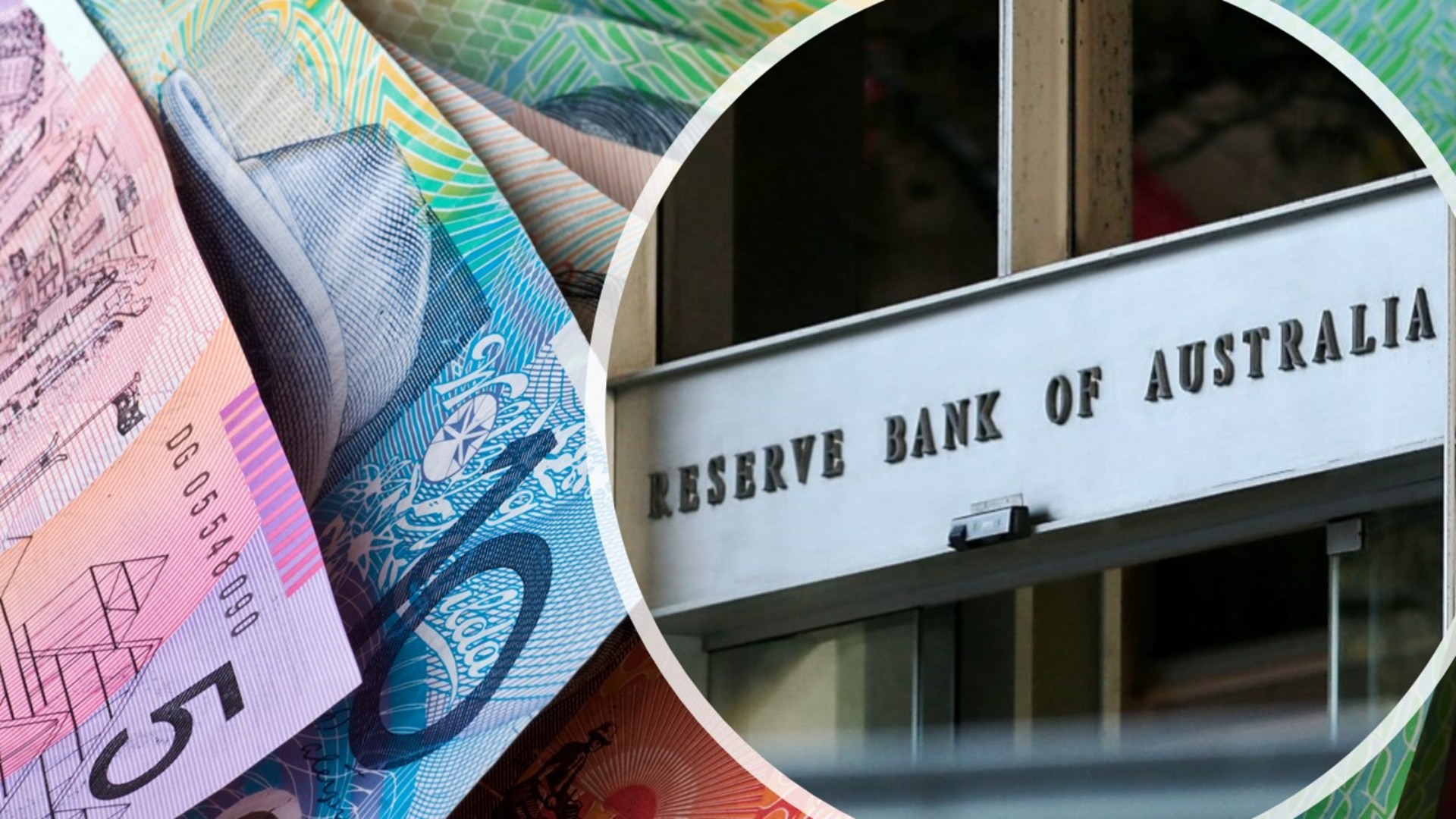
Interest Rates
Don't miss out on the headlines from Interest Rates. Followed categories will be added to My News.
Treasurer Jim Chalmers has refused to answer if his government would push for an election following Tuesday’s rate cut announcement.
Boosting expectations that the Prime Minister will call an April federal election within weeks, the decision is a huge relief for the Albanese Government with the Treasurer declaring it was the rate cut families “need and deserve”.
The Reserve Bank has explained why it made the big move to cut interest rates for the first time in four years warning homeowners it remains “cautious” and suggesting families shouldn’t expect a big run of multiple rate cuts.
Given the timing of the rate cut, the Treasurer was asked on ABC’s 7.30 program if an election would soon be called given another rate cut in the near future was unlikely.
“If this is the only cut in the near future, does it make a strong argument for an election before the next RBA meeting in April?” host Sarah Ferguson asked.
Clearly dodging the question, Ferguson asked again: “You’re starting the answer an awfully long way from where the question was ... does this strengthen the case for an election before the next RBA meeting ... because its unlikely we will get a series of cuts?”
“When it comes to the election timing that’s a matter for the Prime Minister... I try not to apply a political lens to the decision that’s been handed down today,” Mr Chalmers replied.
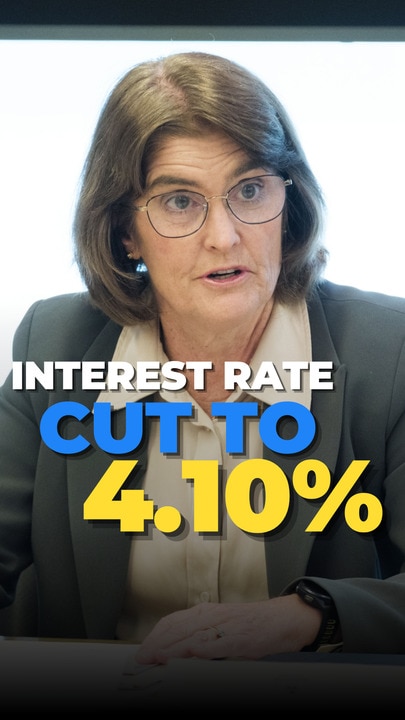
Treasurer Jim Chalmers hails rate cut
“This is very welcome news for millions of Australians,” Mr Chalmers said on Tuesday.
“This is the rate relief that Australians need and deserve. Now, we know that it won’t fix every challenge we have in our economy and household budgets but it will help.
“It’s a demonstration of the progress that Australians have made together in the fight against inflation. That progress that we have made has been substantial, it is now sustained, and it’s reflected in the decision taken by the Reserve Bank today.
“This is the soft landing that we’ve been planning for and preparing for, but we cannot be complacent about the months and years ahead.
“We know that there’s more work to do. We know that this is not the solution to every challenge that people are confronting in their household budgets, but it will help, it is a welcome step when it comes to providing a bit of relief for Australians doing it tough.”
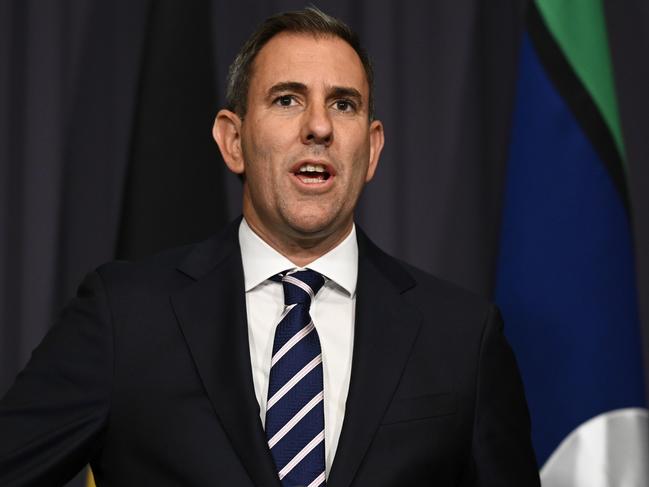
Big banks to pass on the cut
The Treasurer said he had called the CEOs of the major banks after the decision and was pleased that they had all moved immediately to pass on the rate cut.
“Each of them have made an announcement that each of the major banks will be passing on in full the benefits of the decision taken by the independent Reserve Bank today,” he said.
“I don’t take credit for those decisions that they have made and announced already. In each case, they were already well progressed in their planning.
“But I wanted to say I consider that a very good thing. That each of the four major banks has already indicated that the benefits of this rate cut will be passed on in full.”
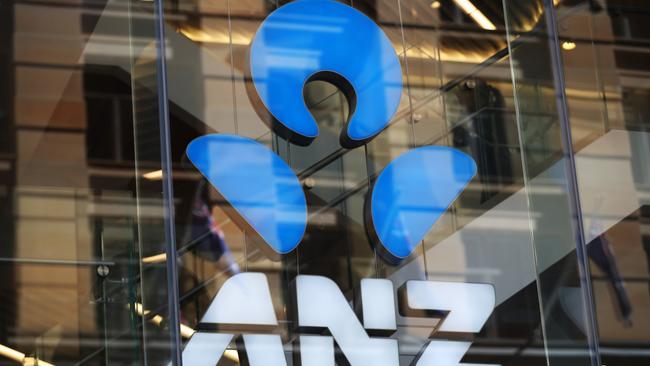
Election timing
Asked if the rate cut locked in an April election and scrapping the March 25 budget the Treasurer said that was a question for the PM.
“We’ve been in the cabinet suite next door for most of today and most of yesterday preparing for and planning for a budget on 25 March,” he said.
“That’s what we’re working towards. We acknowledge the timing of the election is a matter for the prime minister, in consultation with his senior colleagues.
“But we’re working towards that budget. That’s why the ERC met for about four or five hours yesterday and another three or four hours this morning.”
‘Outlook remains uncertain’
For a family with a $750,000 mortgage the rate cut will deliver a $1344 savings a year.
At its meeting today, the Board decided to lower the cash rate target to 4.10 per cent and the interest rate paid on Exchange Settlement balances to 4 per cent.
“The outlook remains uncertain,” the RBA warned.
“Inflation has fallen substantially since the peak in 2022, as higher interest rates have been working to bring aggregate demand and supply closer towards balance,” the statement said.
“In the December quarter underlying inflation was 3.2 per cent, which suggests inflationary pressures are easing a little more quickly than expected.
“However, upside risks remain. Some recent labour market data have been unexpectedly strong, suggesting that the labour market may be somewhat tighter than previously thought.
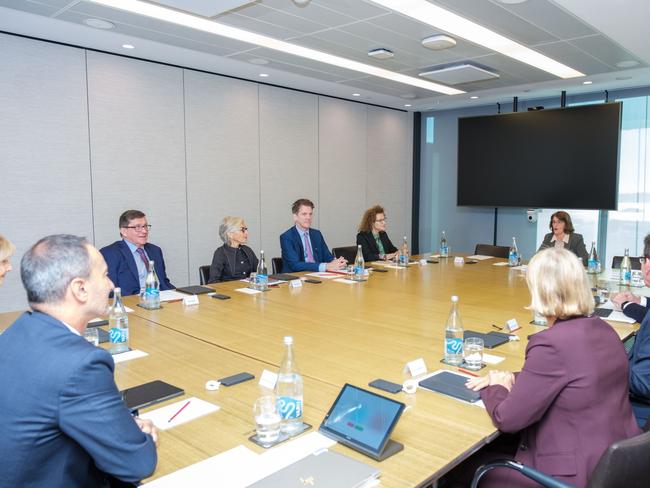
“The central forecast for underlying inflation, which is based on the cash rate path implied by financial markets, has been revised up a little over 2026. So, while today’s policy decision recognises the welcome progress on inflation, the Board remains cautious on prospects for further policy easing.”
It’s the first interest rate cut in Australia since November, 2020. Interest rates have remained static since November, 2023 when the last move was upwards marking 13 interest rate rises.
“At the same time, a range of indicators suggest that labour market conditions remain tight and, in fact, tightened a little further in late 2024,” the RBA said.
“Measures of labour under-utilisation have declined, and business surveys and liaison suggest that availability of labour is still a constraint for a range of employers. Furthermore, productivity growth has not picked up, which implies that growth in unit labour costs remains high.
“More broadly, there are uncertainties regarding the lags in the effect of monetary policy and how firms’ pricing decisions and wages will respond to the slow growth in the economy and weak productivity outcomes while conditions in the labour market remain tight.”
Global events could also intervene and cause problems with the RBA warning that uncertainty about the outlook abroad also remains significant.
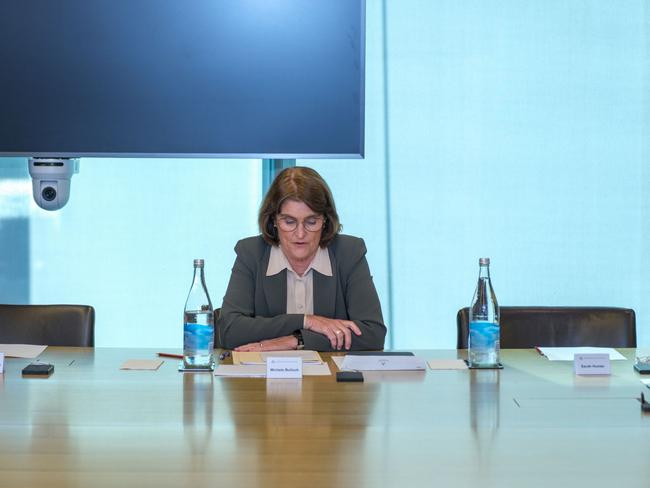
“Geopolitical and policy uncertainties are pronounced and may themselves bear down on activity in many countries if households and firms delay expenditures pending greater clarity on the outlook,” the RBA said.
“Most central banks have been easing monetary policy as they become more confident that inflation is moving sustainably back towards their respective targets. But market expectations for further easing have moderated somewhat in recent months, particularly in the United States.
“The Board’s assessment is that monetary policy has been restrictive and will remain so after this reduction in the cash rate. Some of the upside risks to inflation appear to have eased and there are signs that disinflation might be occurring a little more quickly than earlier expected. There are nevertheless risks on both sides.
The RBA warned that if interest rates tumble too fast, the downward pressure on inflation could stall, raising the nightmare proposition of another rate rise.
“The forecasts published today suggest that, if monetary policy is eased too much too soon, disinflation could stall, and inflation would settle above the midpoint of the target range,” the RBA said.
“In removing a little of the policy restrictiveness in its decision today, the Board acknowledges that progress has been made but is cautious about the outlook.”
And that could quell the Albanese Government’s hopes of a second rate cut on the eve of the federal election at its next meeting on April 1.
Originally published as Treasurer Jim Chalmers refuses to anwser questions on April election following RBA rate cuts



